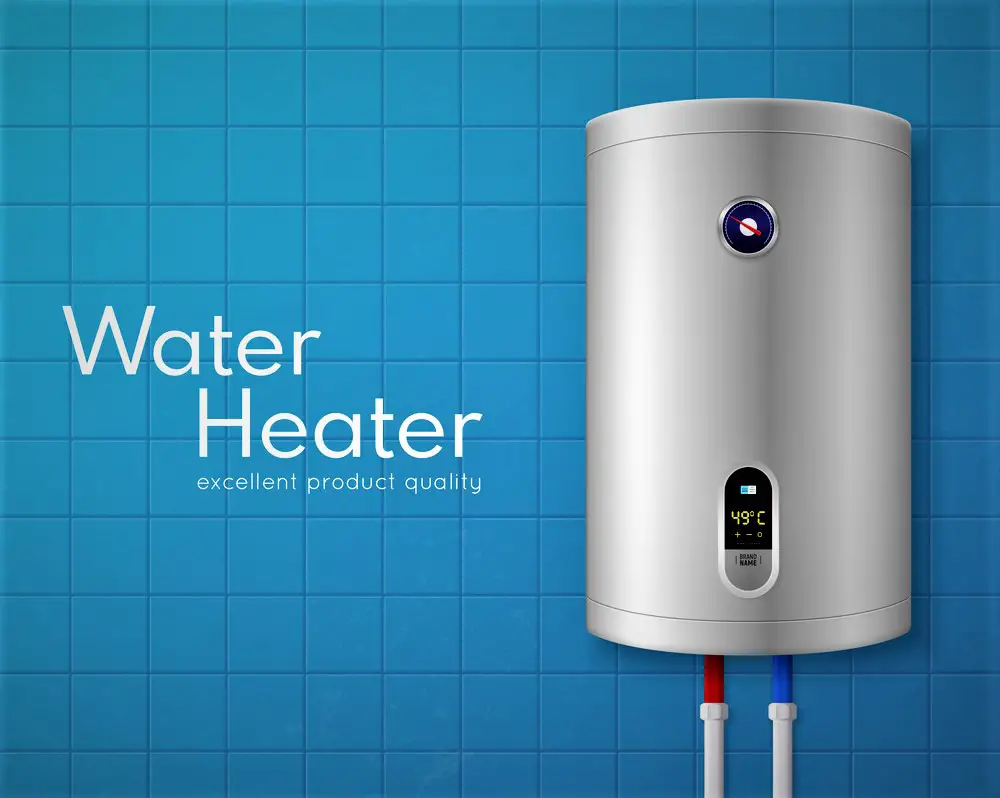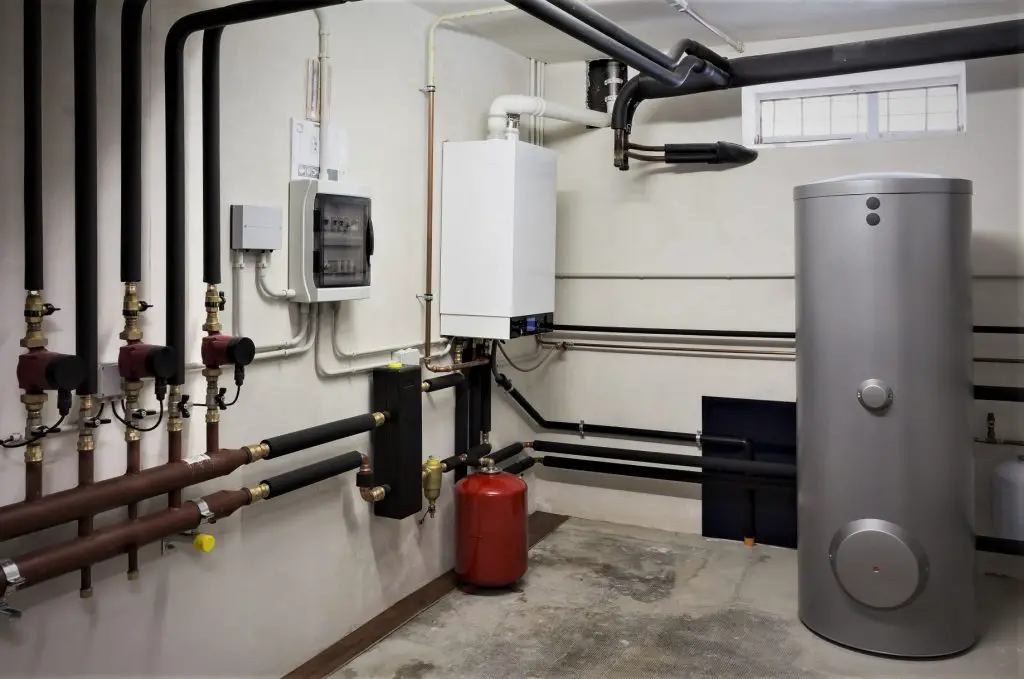We’re going to answer the age-old question: Which are the best water heater supply lines stainless or copper? However, just so you know, water heater supply line pipes can be made of either material. Or even from braided lines and even braided flex lines. So this article will help you understand the differences between these two types of materials and which one may be best for your home.
Best Water Heater Supply Lines Stainless or Copper
The water lines that carry cold and hot water to your tank can either be copper or stainless steel. Water heaters used to only have a single pipe going into the unit. But now they come with two separate hoses for hot and cold running through one tube inside the home. In this case, you will need to know the difference between these copper and stainless steel lines.
Copper vs Stainless Steel Water Heater Lines
A copper supply line is more flexible and will not rust, but it can corrode over time. Water lines made from stainless steel are a little bit more expensive than the standard version. But they will last much longer.
Copper also helps to prevent limescale buildup in your steel tank. This means that you do not have to drain the unit as often. Similarly, water lines from copper are the best choice for hot water applications. This is why they are more frequent in use than stainless steel ones.
Corrugated Copper Benefits Over Corrugated Stainless Steel Water Heater Supply Lines
A corrugated copper water heater supply line will reduce the amount of noise that comes out when both cold and hot water runs through your system. Water lines made from stainless steel do not have this benefit. So, they tend to be a bit noisier than their counterparts. This can be annoying if you live in an apartment or condo complex where sound travels easily. Similarly, Waterlines from copper are also easier to install than those of stainless steel.
Pros and Cons of Using Copper in Your Home
Copper is more expensive than stainless steel, but it does have its benefits. Waterlines made from the material are easy to install and will not corrode over time. This means that you do not need to worry about rusting or leaks in your unit.
Water lines from copper flex also help to prevent limescale buildup. So, there is fewer maintenance issues. Waterlines made from copper piping are also more flexible because copper flexes in its natural state than those from stainless steel. This makes them the best choice for hot water applications.
Pros: Flexible and easy to maneuver around your home. Prevents rusting and corrosion over time – Helps prevent limescale buildup in the tank.
Cons: More expensive than copper. They can be noisier than those from stainless steel. So if you live in an apartment or condo, the noise may bother your neighbors.
The Pros and Cons of Stainless Steel Water Supply Lines
Stainless steel water heater supply lines are a little bit more expensive than the standard version, but they will last much longer. If only there were stainless flex lines available.
Pros:
- Waterlines made from stainless steel also help to prevent limescale buildup in your water tank.
- This also means that you do not have to drain it as often.
- Waterlines constructed out of stainless steel are the best choice for cold water applications.
- The stainless steel braid is also considered stainless corrugated and braided stainless.
Cons:
- Waterlines made from this material can corrode over time and are not as flexible. This makes install and repair a hassle.
- So they tend to be a bit more difficult to manoeuvre around your home.
- You will have two separate hoses running through one tube inside your house. This can result in increased noise and vibrations.
The Difference in Water Quality Between Copper and Stainless Steel Waterlines
Water quality is important not just for the people drinking it, but also for appliances like water heaters which need to operate at peak efficiency. Water that is free of sediment can help your appliance last longer and function better overall. However, the water quality between copper and steel water heater lines is pretty much the same.
Cost of Copper vs Stainless Steel
Water lines are one of those things that you don’t think about often, but when they break or need to be replaced it can cause a lot of headaches and cost plenty of money. The cost of copper vs stainless steel waterlines is as follows:
- Waterlines made from copper cost an average of $150.
- Water lines made from stainless steel can be as much as a few hundred dollars more than that, depending on the size and other factors involved in installation costs.
The Installation Process for Copper vs Stainless Steel Waterlines
The installation process for waterlines made from copper and steel is similar, but not quite the same. Waterlines constructed out of stainless steel are a bit more difficult to install than those made from copper because they do not have any give or flexibility which means that you need to make sure everything fits before you tighten anything down on your home.
FAQs: Water Heater Supply Lines Stainless or Copper
Which is Better, a Waterline Made From Copper or Stainless Steel?
Copper lines are typically less expensive than stainless steel ones and offer a wide range of installation and maintenance options. Stainless steel water heater supply lines are more expensive than copper ones on average but they can last decades without needing to be replaced.
How Long Do Copper Hot Water Cylinder and Stainless Steel Cylinder Last?
It is usually necessary to replace a hot water cylinder every 8-12 years, but it can last longer if it is properly maintained.
Life expectancy of modern stainless steel cylinders is about 30-plus years, but mains pressure glass-lined steel is shorter at 12–20 years.
Does Stainless Steel Rust in Water?
Stainless steel is one of the most durable materials in existence because it’s able to withstand even harsh environments. It does not rust or corrode simply, which makes this type of metal perfect for long lasting products like cutlery sets!
Which Water Heaters Have the Most Power and Which Ones Use Up More Energy?
Water heaters that operate on natural gas have the most power and use up more energy than the electric water heater.
How Long Do Stainless Steel Water Lines Last?
Waterlines created from stainless steel can last decades without needing a replacement. They are durable and corrosion resistant which means that you won’t have to worry about them rusting or corroding over time.
Conclusion
We hope you have found this article helpful. If so, please share with others who are looking to replace their water heater supply lines! So they can understand the critical importance between copper and stainless steel water supply lines for your hot water heater.


